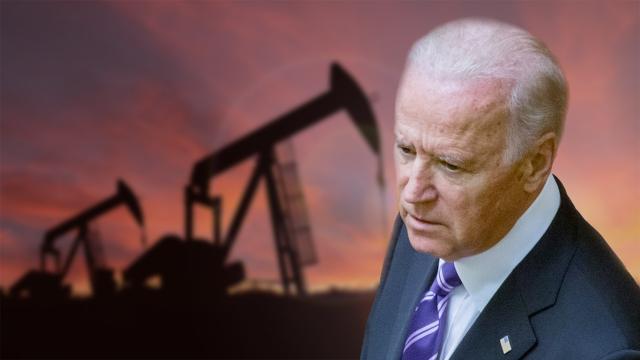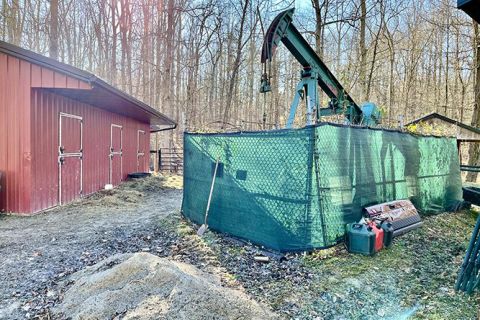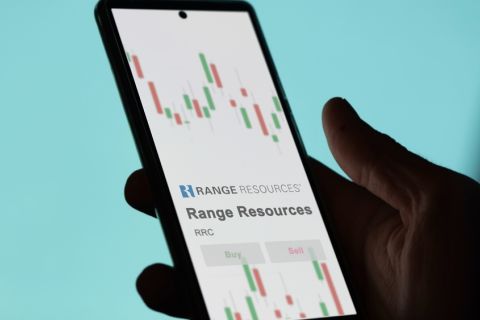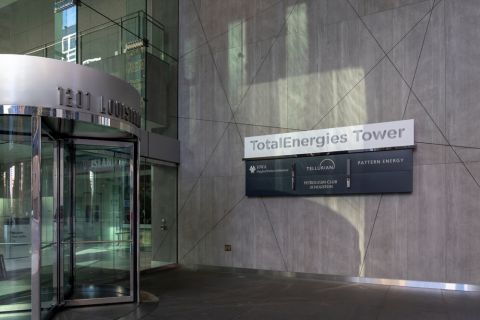
(Source: HartEnergy.com; Sodel Vladyslav, Ronnie Chua/Shutterstock.com)
API President Mike Sommers expressed his willingness to work with the incoming Biden administration during his annual State of the American Energy address on Jan. 13, listing areas, like methane regulation, where he believes there can be common ground.
At the same time, areas such as access to federal lands and waters could be contentious.
“We know that there are going to be issue areas where we’re going to disagree,” he said during a Q&A session following his presentation. “We’re going to work with the Biden administration when we can but we’re going to oppose them when we must.”
Sommers touched on the role of oil and gas in combatting climate change and acknowledged that the industry had work to do to address issues of diversity, equity and inclusion.
“One of the things we know, based on an API study, is that 50% of our workforce for the future is going to be supplied by women and minorities,” he said. “And we need to make sure those women and minorities within our industry have a path to grow within the oil and gas industry, and that means providing mentors, that means providing leadership so they can continue to grow and continue to succeed within the oil and gas industry writ large.”
‘On the Right Track’
Sommers appeared to be bracing API’s members for change in Washington following four years of a fossil fuel-friendly Trump administration.
“Our new president and Congress have some big decisions to make on energy—energy abundance or foreign dependence, American jobs or outsourced jobs, economic revival or small-town decline, progress or retreat,” Sommers said.
In particular, Sommers cited regulatory efforts that would have achieved far less of what the industry has been able to accomplish on its own. He noted the 2010 Waxman-Markey bill, which would have reduced CO2 emissions in 2019 by 10% from 2007. The bill was named after its authors former representatives Henry Waxman of California and Edward Markey of Massachusetts.
The proposal did not make it into law but the industry, which rode innovations in hydraulic fracking and horizontal drilling to vastly increase production of natural gas, achieved a drop in CO2 emissions of almost 15%. The industry’s efforts on methane emissions have already resulted in a 70% reduction in the largest-producing U.S. regions.
“When demand and production go significantly up while emissions go significantly down, we’re clearly on the right track,” Sommers said. “We haven’t been waiting on guidance or on orders from others; we have done this all on our own initiative, with our own money, with our own engineering and technology. We’ve exceeded goals that even the most heavy-handed regulators wanted to impose on us.”
‘Stay on Mission’
President-elect Joe Biden’s description of oil and gas during the campaign as a “subsidized” industry did not sit well with Sommers. He noted that manufacturers in general are encouraged by tax law because those investments serve a competitive economy by creating new jobs, goods and services. In the case of energy, investments help deliver environmental progress.
“This talk of subsidies is a false and tiresome claim we have heard before,” Sommers said. “In 2021, as always, we’re going to defend the principle that energy producers should be treated like any other manufacturer. We can’t forget that it’s low-cost, reliable and secure energy that makes our industries competitive in the global marketplace.”
With the White House and both houses of Congress in Democratic control, policy tensions are likely, but while Sommers stressed that API would not “get caught up in every political battle of the moment,” the organization would continue to have members’ backs.
“We are all familiar with the caricatures of the oil and gas industry,” he said. “But I can assure you that whatever the issue, whatever the controversy, we’re going to stay on mission with positions based in reason, fact and reality.”
Recommended Reading
Woodside’s GoM Trion Project Wins Social Impact Assessment Approval
2024-02-14 - Woodside Energy’s Trion is expected to start production in the Mexican sector of the Gulf of Mexico in 2028, and Woodside said the impact assessment will help the operator engage with local communities during the construction phase.
Well Done Foundation Wins California Orphan Well Project
2024-02-12 - Nonprofit Well Done Foundation will plug orphan wells in Santa Barbara County, California, starting in Orcutt and Santa Maria.
Diamondback May Go Nuclear to Power Permian Basin Ops
2024-04-08 - Oklo Inc., a California fission power plant developer, on April 8 said it signed a letter of intent to collaborate with Diamondback Energy on implementation of nuclear energy for drilling operations in the Permian Basin.
Range Resources Expecting Production Increase in 4Q Production Results
2024-02-08 - Range Resources reports settlement gains from 2020 North Louisiana asset sale.
TotalEnergies Acquires Eagle Ford Interest, Ups Texas NatGas Production
2024-04-08 - TotalEnergies’ 20% interest in the Eagle Ford’s Dorado Field will increase its natural gas production in Texas by 50 MMcf/d in 2024.






